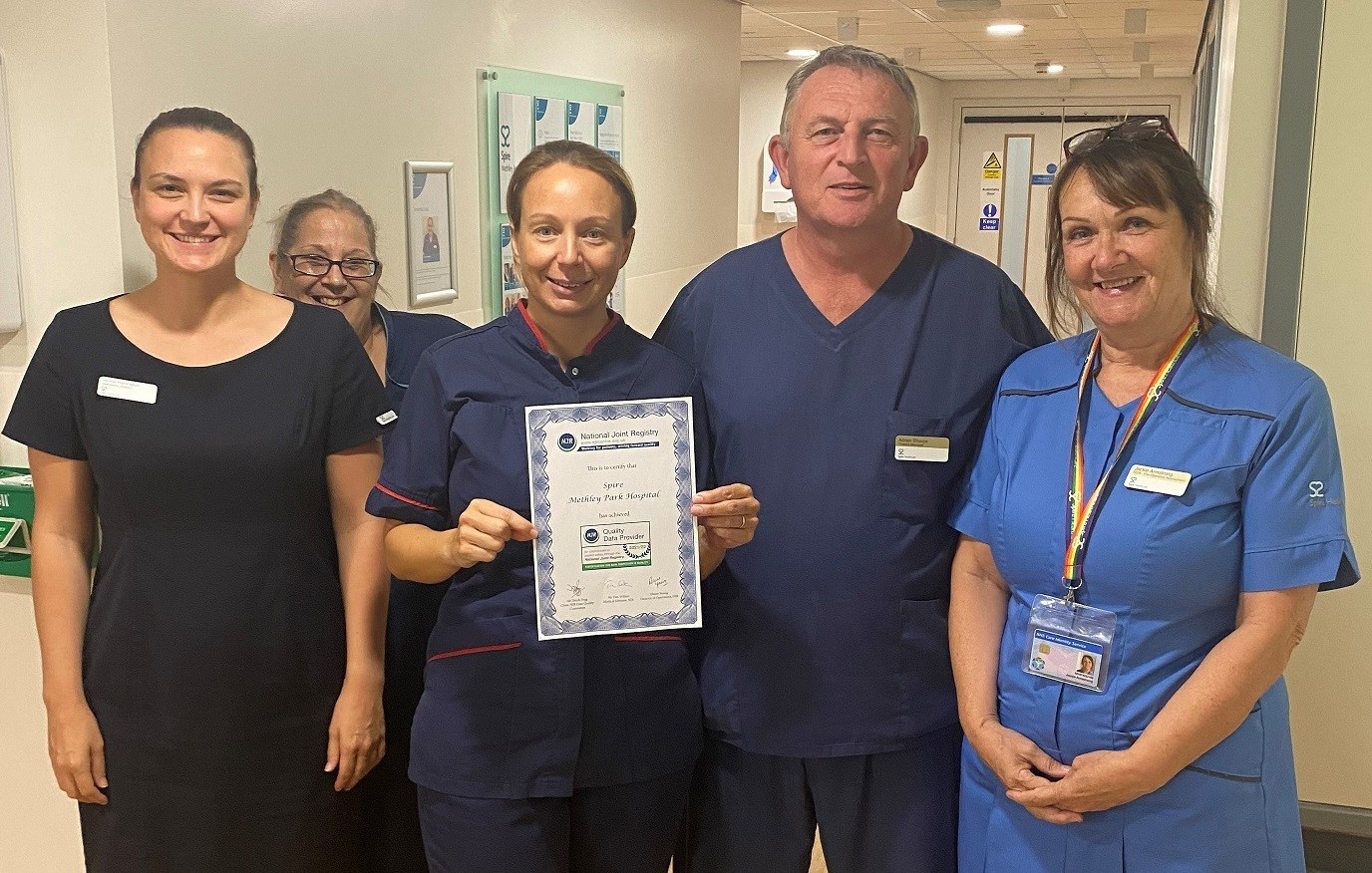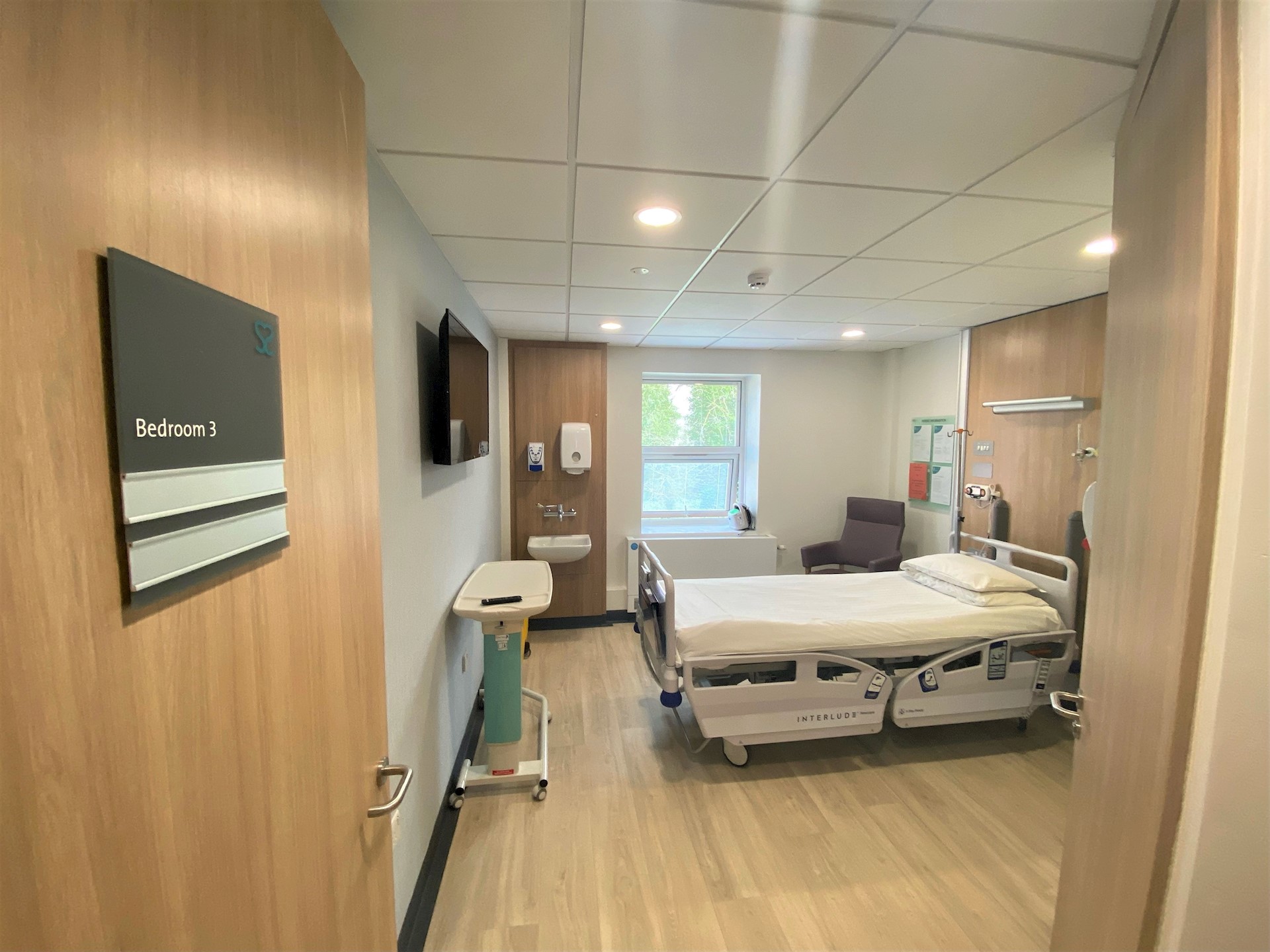Spire Methley Park Hospital maintains its 'Good' CQC rating
25 January 2024
Hospital rated as ‘Good’ for being safe, effective, caring, responsive and well-led and is helping to ease pressure on NHS waiting lists
We welcome your views on our website and invite you to take part in a brief survey when you've finished your visit.
Your response will help us improve the site and the experience we offer to visitors.
25 January 2024
Hospital rated as ‘Good’ for being safe, effective, caring, responsive and well-led and is helping to ease pressure on NHS waiting lists
26 August 2022
Spire Methley Park Hospital is celebrating after being named as a National Joint Registry (NJR) Quality Data Provider after successfully completing a national programme of local data audits.

10 May 2022
Spire Healthcare has completed a £1.75m refurbishment at its Methley Park Hospital.

27 October 2021
In the recent patient feedback survey, 94% said that Spire Methley Park Hospital not only met but exceeded their expectations and received outstanding overall scores for patient scores.
18 June 2021
Spire Methley Park is celebrating after being named as a National Joint Registry (NJR) Quality Data Provider 2019/20 after successfully completing a national programme of local data audits.
28 February 2020
An explanation of ostetomies around the knee by Mr Andrew Legg
27 February 2020
An explanation of alopecia with Consultant Dermatologist Dr David Fairhurst.
24 February 2020
An explanation of a prolapse with Consultant Gynaecologist Mr Farag.
13 February 2020
Getting you back to the things you love